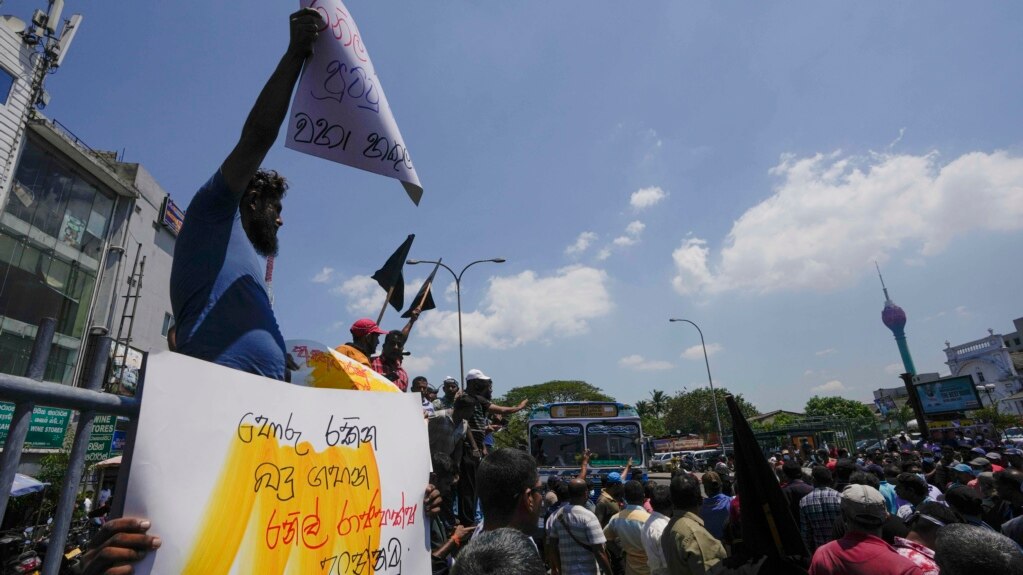The International Monetary Fund (IMF) approved a nearly $3 billion financial assistance plan for Sri Lanka Monday. The IMF also said it will carefully study Sri Lanka’s governing practices including possible corruption as part of the program.
About $333 million will be immediately provided to help solve the country's humanitarian crisis. The approval will also open up financial support from other international institutions.
The South Asian country suspended repayment of its debt last year when it lacked foreign currency needed to pay for imports of fuel and other important goods. The shortages led to street protests that forced out the country’s president.
The economic situation has improved under current President Ranil Wickremesinghe. But his plans to privatize state companies have brought opposition.
Peter Breuer is the top IMF official in Sri Lanka. He said the IMF would study corruption and governance weaknesses in Sri Lanka and provide suggestions.
Since last year, Sri Lankans have protested in the street demanding punishment and recovery of money allegedly stolen by members of a former ruling family. Critics of the government say corruption has been the main factor behind the country's economic crisis.
Kristalina Georgieva is IMF’s managing director. She said in a statement that Sri Lanka’s institutions and governance “require deep reforms.”
The IMF's approval means Sri Lanka will no longer be considered a bankrupt nation. The country can also restart its normal dealings, Wickremesinghe said in a statement on Tuesday. The approval will unlock financing of up to $7 billion from other international financial institutions.
Wickremesinghe said that as Sri Lanka’s foreign currency improves, the country will slowly lift import restrictions. He said, “we will bring in essential goods, medicines and goods needed for the tourism industry.” He added that he expects to present the agreement with the IMF to Parliament Wednesday.
Earlier this month, the last step for the approval was cleared when China joined Sri Lanka's other lenders in providing promises for debt restructuring. China owns about 10 percent of Sri Lanka’s total foreign debt.
The IMF required Sri Lanka to raise income taxes and remove government support for electricity and fuel. But Breuer said the impact of the reforms on the poor needs to be limited.
Officials must now discuss with Sri Lanka's lenders how to restructure its debt.
Sri Lanka's foreign currency ran short as tourism and export earnings fell during the COVID-19 pandemic. Sri Lanka also faced heavy debt payments to Chinese and other lenders for large projects that did not create enough earnings. Sri Lanka also used its foreign currency holdings to try to strengthen Sri Lankan money, the rupee.
Since Wickremesinghe became president, shortages have eased and hours-long daily power cuts have ended. The central bank says its currency holdings have improved and the black market no longer controls the foreign currency trade.
However, workers’ organizations oppose Wickremesinghe's plans to privatize state companies as part of his reform plan. And public anger may spread if he fails to act against the Rajapaksa family, who people believe were responsible for the economic crisis.
Wickremesinghe's critics accuse him of protecting the Rajapaksa family in return for their support for his presidency.
I’m Jill Robbins.

